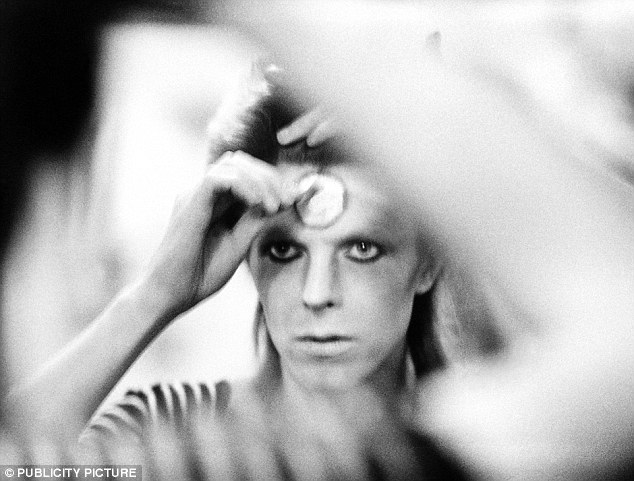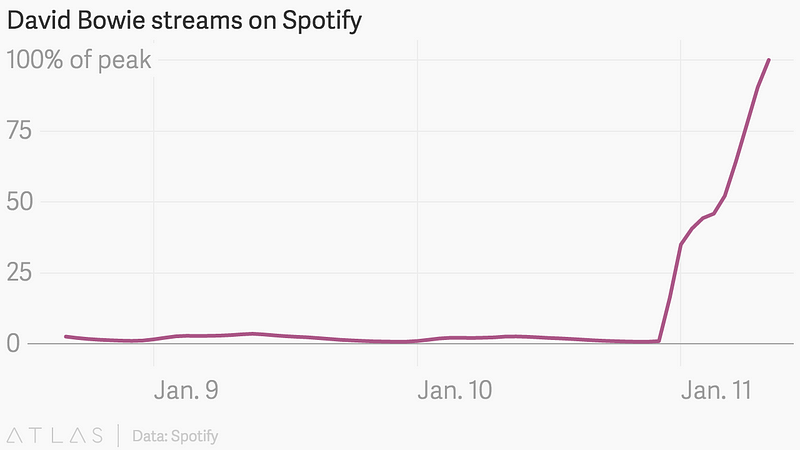
On social media, the scale of the response to Bowie’s death has been astonishing. It also seems to have been as emotionally intense and widespread across countries and demographics as it was high in volume.
We threatened to break Spotify’s servers when the whole planet went straight to the Bowie back catalogue and kept it streaming all night long, as did radio stations and cafes all over the world.

My Facebook feed is a continuous stream of fan-curated Bowie videos; for a day or so it seemed like everyone was living inside YouTube; and even the Twitter community’s interests were so closely aligned for once that nobody needed bother with hashtags or even direct references to get their point across.
Good lord. He was saying goodbye and we never knew it.
— Matthew Sweet (@DrMatthewSweet) January 11, 2016
Inevitably, there are those who are discomfited by or (rightly) suspicious of highly emotional crowds. There are those who see participation in public expressions of grief for popular celebrities as superficial to the point of pathology, and cultural snobs who want to apply some kind of fandom threshold test before we’re allowed to participate. And there are those who see our interest in celebrities like Bowie as symptomatic of a broader tabloid culture that has blurred the boundaries between entertainment and information, between media spectacle and what in commonsense understandings is called the ‘real world’: which means the world of politics and business.
But there is nothing more real than this massively emotional media event. Bowie’s death is about the story of art, culture and music in the twentieth century and beyond — in that history, Bowie is a significant figure in his own right; but in his passing he stands in for a bunch of other things as well. He’s a metonym, a lightning rod — or even a reliquary, if you prefer. The cultural practices of this moment are about telling the stories of the bodies and identities of real people who grew up with Bowie’s fierce and astonishing presence in their media world and his music in their heads, just as much as they’re about recalling and remaking the story of Bowie himself.
Not only do we humans use art, culture and music to work through our own identities, connect to one another and tell our own stories, and not only are art, culture and music forever and always deeply, inextricably entangled with our everyday lives: art, culture and music (and, yes, even religion, Richard Dawkins) are how our entire species — as beautiful and strange and hopelessly tragic as we are — makes sense of the whole damn mess of our existence.
Politics and business don’t have any special claim to the ‘real world’; in fact, maybe they’re just the management layer…man.